Yellowish wildflowers
Most of these flowers have little in common beyond having yellowish petals. For orangish petals, see reddish wildflowers.
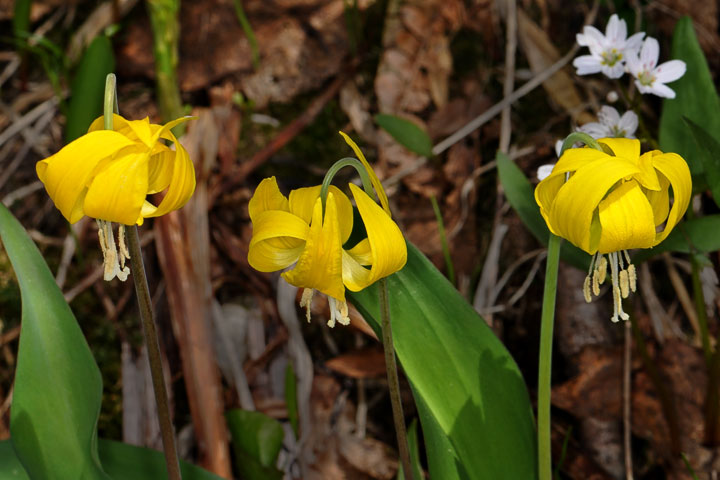 The yellow glacier lily (Erythronium grandiflorum) is also known as the dogtooth fawn lily and the dogtooth violet.
The yellow glacier lily (Erythronium grandiflorum) is also known as the dogtooth fawn lily and the dogtooth violet.
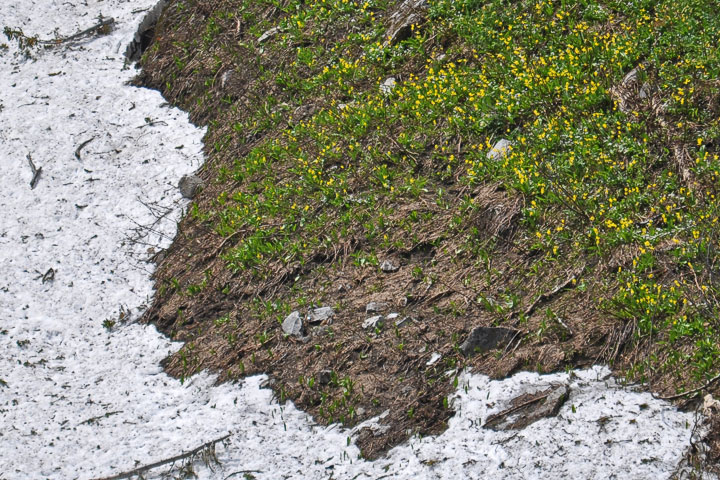 The yellow glacier lily is so named because it often springs up alongside glaciers, or in this case a melting snowfield.
The yellow glacier lily is so named because it often springs up alongside glaciers, or in this case a melting snowfield.
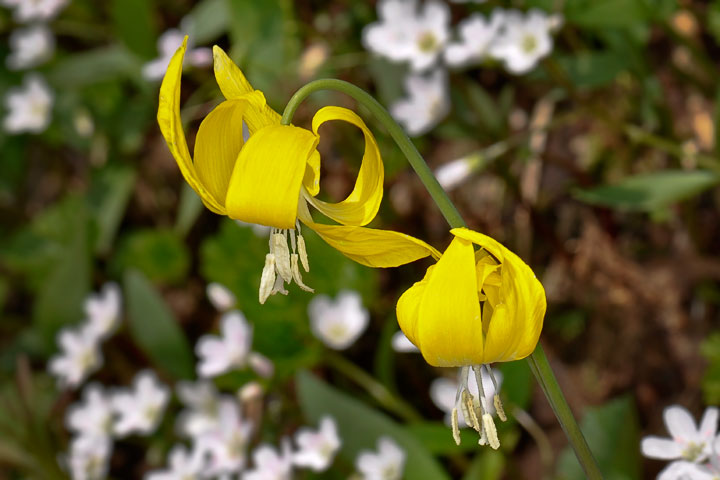 Two yellow glacier lilies sit in a sunlit mountain slope mainly populated with spring beauties.
Two yellow glacier lilies sit in a sunlit mountain slope mainly populated with spring beauties.
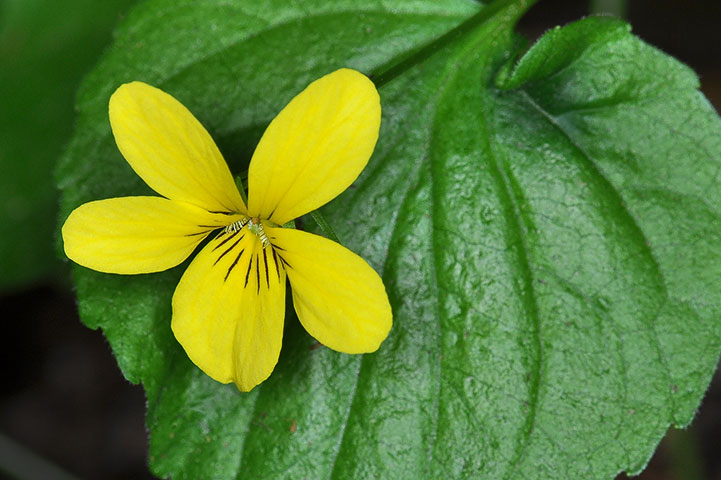 The stream violet (Viola glabella) does best in partly shady moist conditions. The other locally common violet, the Canada violet, is mainly white.
The stream violet (Viola glabella) does best in partly shady moist conditions. The other locally common violet, the Canada violet, is mainly white.
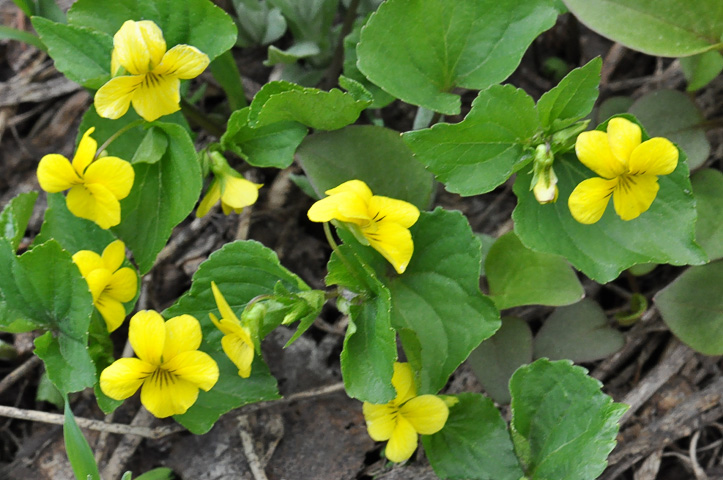 A cluster of stream violets.
A cluster of stream violets.
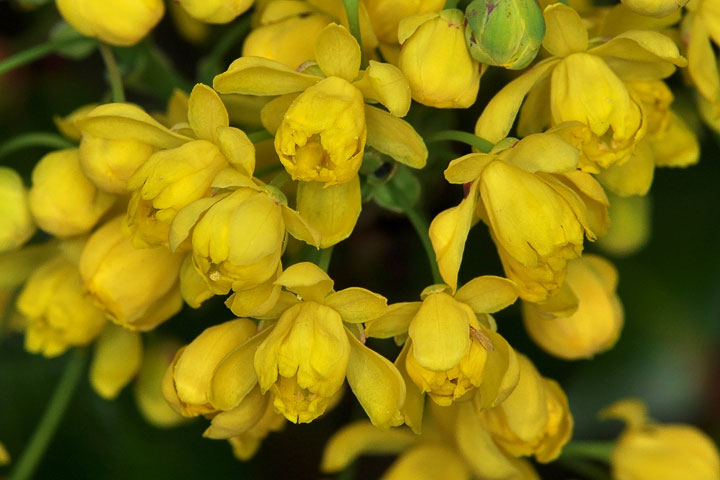 The oregon grape (Berberis aquifolium) produces yellow blooms in the spring and then blue berries.
The oregon grape (Berberis aquifolium) produces yellow blooms in the spring and then blue berries.
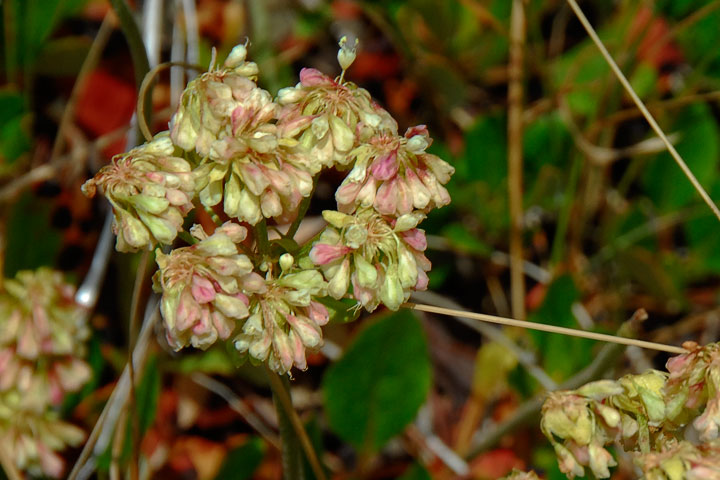 This is probably the blushing wild buckwheat (Eriogonum ursinum var. erubescens).
This is probably the blushing wild buckwheat (Eriogonum ursinum var. erubescens).
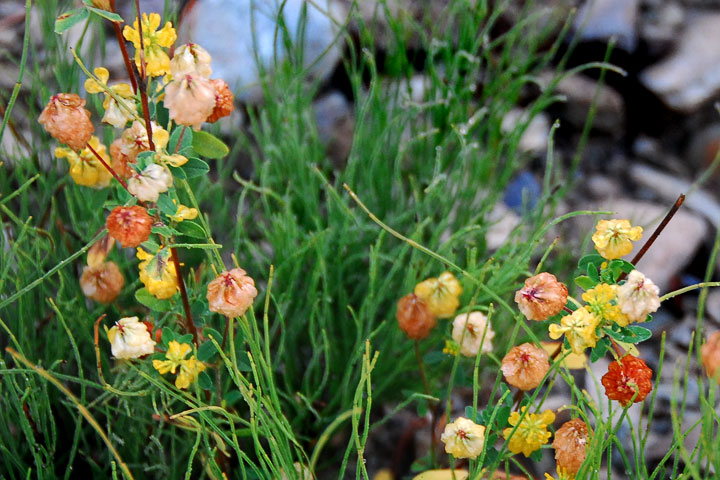 The Iceland poppy (Papaver nudicaule) comes in an array of colours: red, white and yellow. These were found in late July high on mountain slopes.
The Iceland poppy (Papaver nudicaule) comes in an array of colours: red, white and yellow. These were found in late July high on mountain slopes.
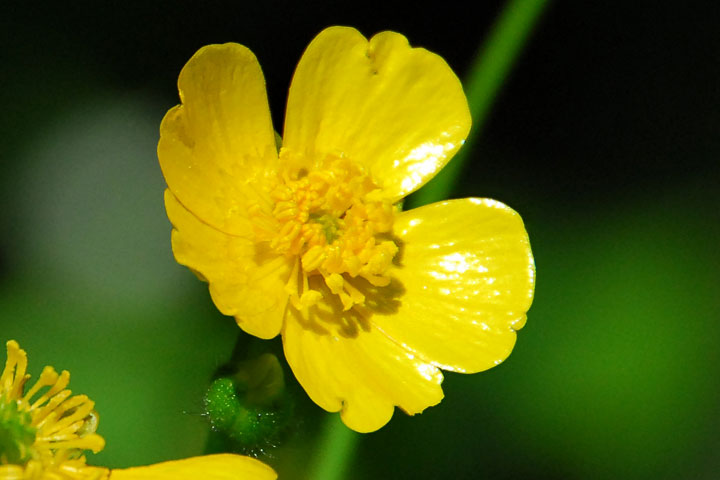 The creeping buttercups (Ranunculus repens) can be seen almost anywhere. It is classified as an invasive species. It contains a toxin which can cause pain to another invasive species: cattle.
The creeping buttercups (Ranunculus repens) can be seen almost anywhere. It is classified as an invasive species. It contains a toxin which can cause pain to another invasive species: cattle.
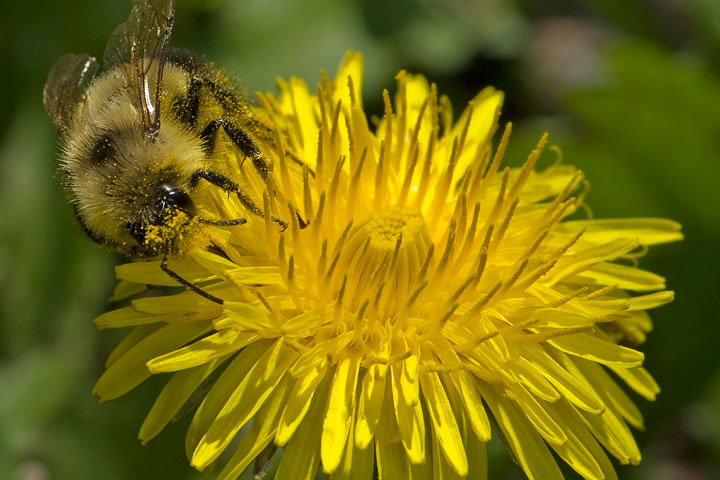 The ubiquitous dandelion (Taraxacum officinale) is a favourite of bumblebees, and for that matter, of black bears.
The ubiquitous dandelion (Taraxacum officinale) is a favourite of bumblebees, and for that matter, of black bears.
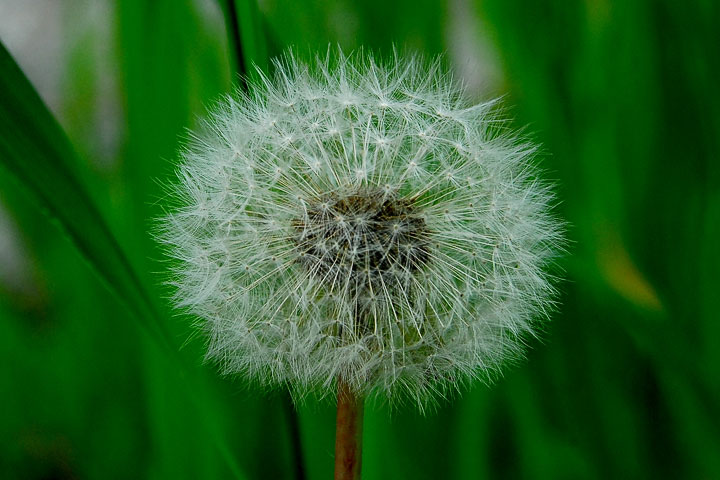 A dandelion which has gone to seed.
A dandelion which has gone to seed.
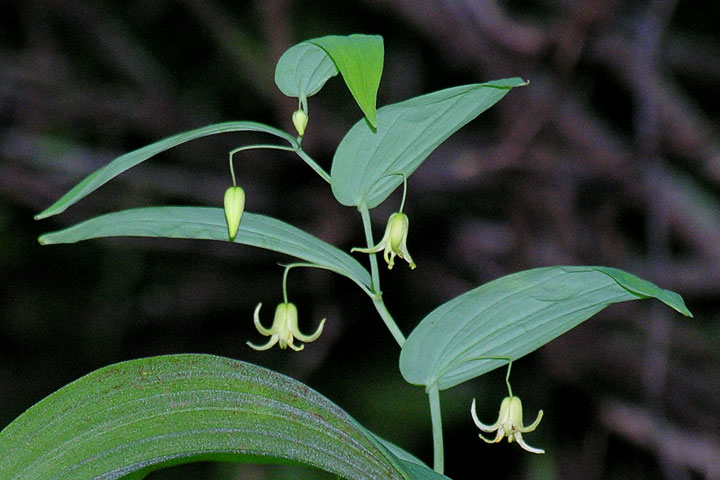 A clasping twisted stalk (Streptopus amplexifolius). It was seen at Gibson Lake.
A clasping twisted stalk (Streptopus amplexifolius). It was seen at Gibson Lake.
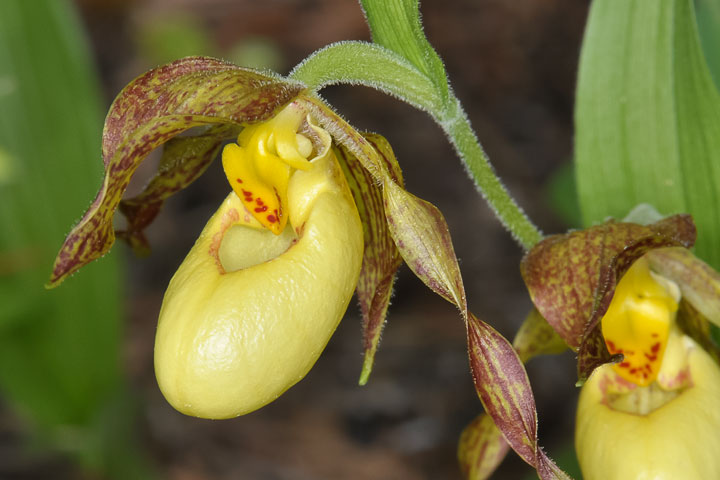 A yellow lady’s slipper (Cypripedium parviflorum) was seen close to the lakeshore. Lady’s slippers are orchids. Their slipper-shaped pouches trap insects, which then fertilize the flower as they climb out.
A yellow lady’s slipper (Cypripedium parviflorum) was seen close to the lakeshore. Lady’s slippers are orchids. Their slipper-shaped pouches trap insects, which then fertilize the flower as they climb out.
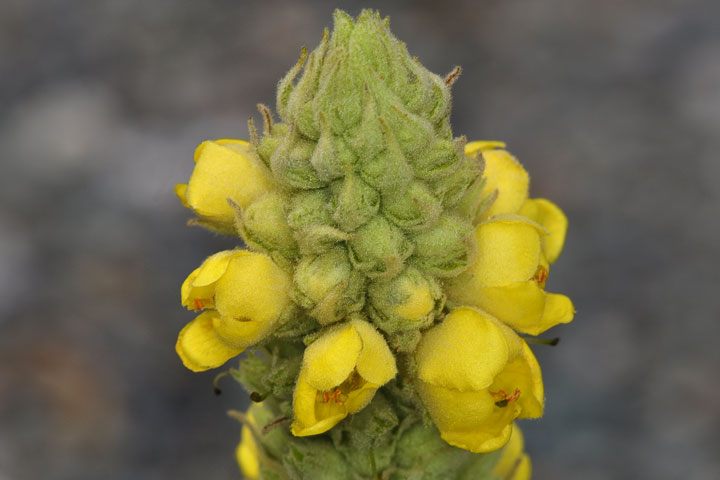 The spike of the great mullein (Verbascum thapsus) is covered with small yellow flowers.
The spike of the great mullein (Verbascum thapsus) is covered with small yellow flowers.
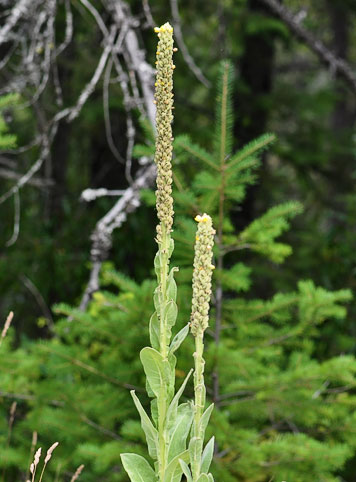 The great mulleins (Verbascum thapsus) is native to Eurasia, but introduced to North America. It has small yellow flowers on a tall stem, which rises from a large rosette of leaves.
The great mulleins (Verbascum thapsus) is native to Eurasia, but introduced to North America. It has small yellow flowers on a tall stem, which rises from a large rosette of leaves.
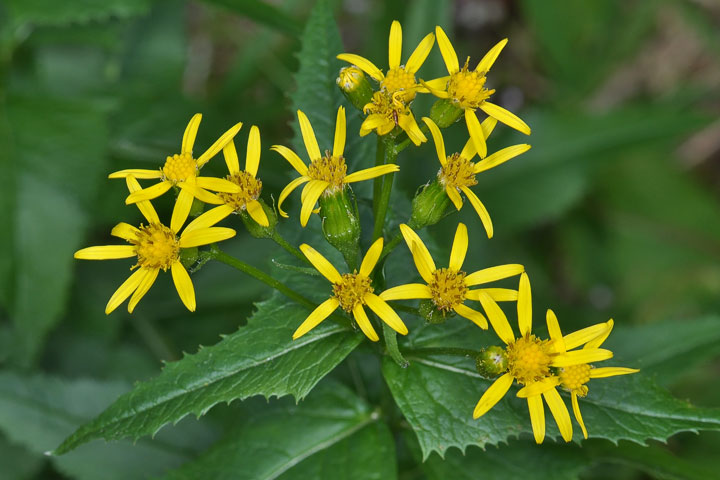 The arrow–leaved groundsel (Senecio triangularisis) a member of the aster family which thrives in rich mountain soils. It does particularly well in partly shady locations.
The arrow–leaved groundsel (Senecio triangularisis) a member of the aster family which thrives in rich mountain soils. It does particularly well in partly shady locations.
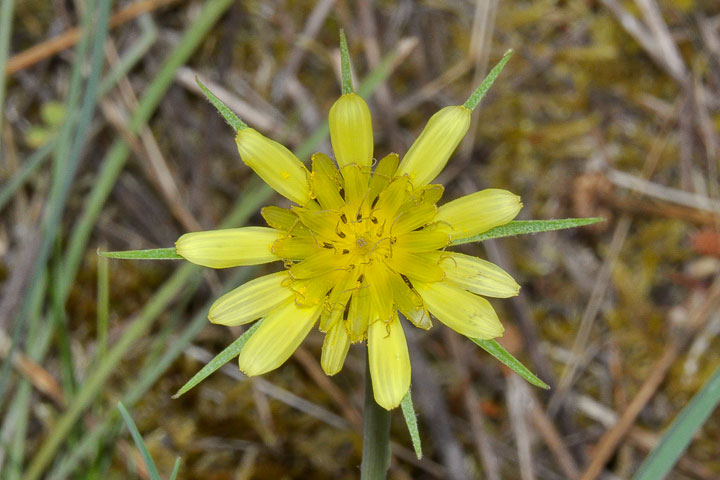 Yellow salsify (Tragopogon dubius) is an European species naturalized in BC. Although considered an invasive, it is actually rather difficult to find.
Yellow salsify (Tragopogon dubius) is an European species naturalized in BC. Although considered an invasive, it is actually rather difficult to find.
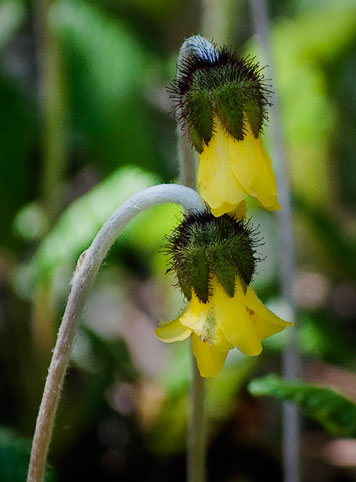 The small yellow petals of the yellow mountain avens (Dryas drummondii) are framed by large green sepals.
The small yellow petals of the yellow mountain avens (Dryas drummondii) are framed by large green sepals.  Nicole Tremblay
Nicole Tremblay
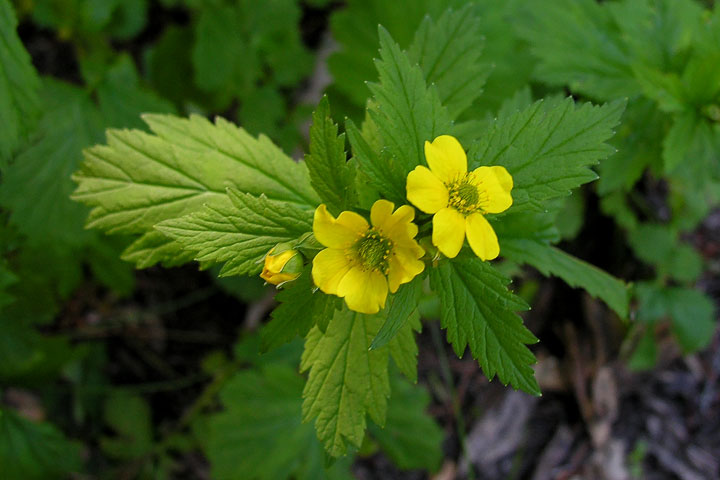 A large–leaved avens (Geum macrophyllum) from Gibson Lake. This is a perennial herb found throughout the Province in all but the driest areas.
A large–leaved avens (Geum macrophyllum) from Gibson Lake. This is a perennial herb found throughout the Province in all but the driest areas.
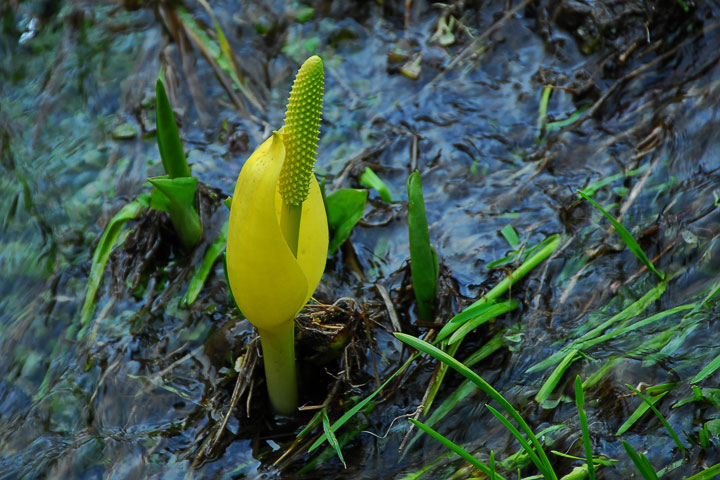 In the spring, the skunk cabbage blooms. The central spike is covered by tiny flowers. Insects are attracted to it by the distinctive odour.
In the spring, the skunk cabbage blooms. The central spike is covered by tiny flowers. Insects are attracted to it by the distinctive odour.
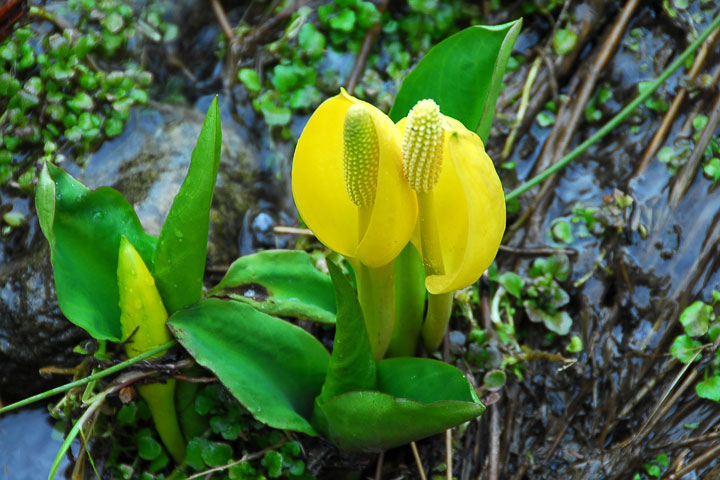 The skunk cabbage (Lysichiton americanus) thrives in moist ground and along creeks filled by seepage off the mountains. The skunk cabbage is one of the very few plants which is thermogenic: it can increase its temperature well above that of the surrounding air. This helps it get an early start in the spring and helps spread its insect–attracting oder.
The skunk cabbage (Lysichiton americanus) thrives in moist ground and along creeks filled by seepage off the mountains. The skunk cabbage is one of the very few plants which is thermogenic: it can increase its temperature well above that of the surrounding air. This helps it get an early start in the spring and helps spread its insect–attracting oder.
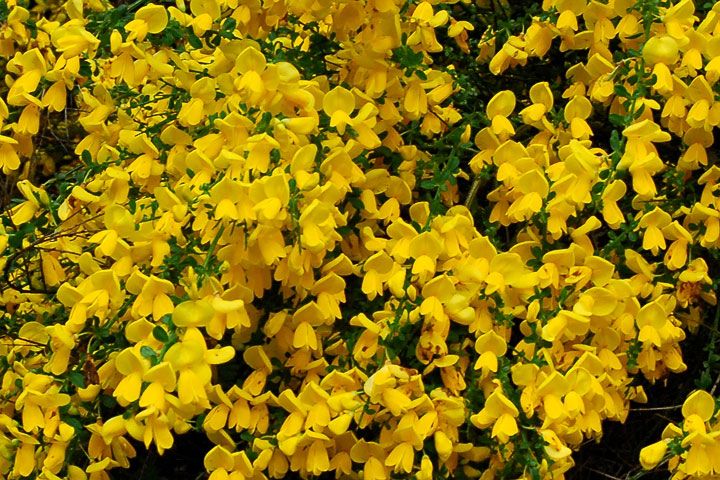 Scotch broom (Cytisus scopaius) is a frequent roadside adornment around the Lake. It is an invasive plant which often outcompetes native species.
Scotch broom (Cytisus scopaius) is a frequent roadside adornment around the Lake. It is an invasive plant which often outcompetes native species.
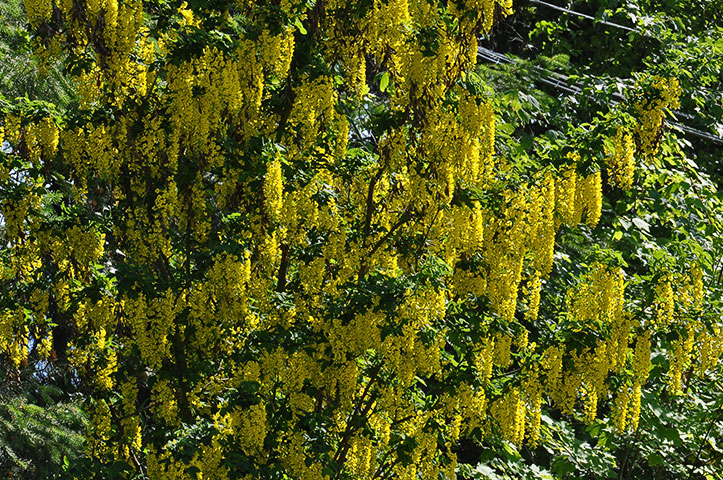 The laburnum (aburnum anagyroides) is also known as the Golden Chain tree. It is a European import which is seen on private properties along the North Shore. But, it has escaped and is occasionally seen in the wild.
The laburnum (aburnum anagyroides) is also known as the Golden Chain tree. It is a European import which is seen on private properties along the North Shore. But, it has escaped and is occasionally seen in the wild.
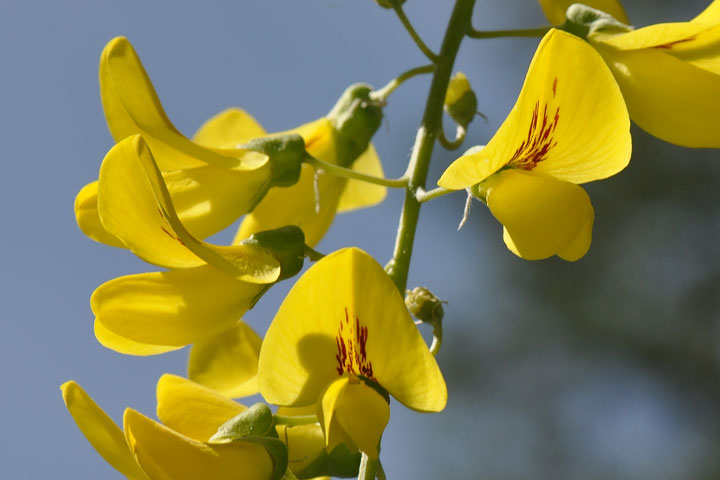 These laburnum blooms (aburnum anagyroides) were found in Kokanee Creek Provincial Park, far from any dwellings.
These laburnum blooms (aburnum anagyroides) were found in Kokanee Creek Provincial Park, far from any dwellings.
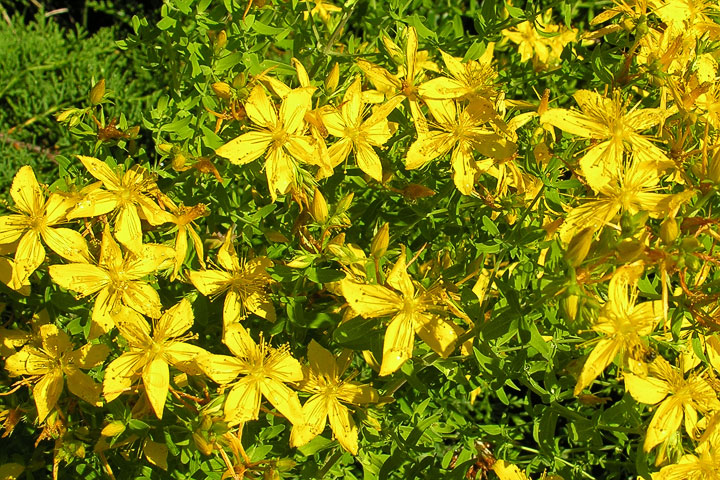 This St. John’s wort (Hypericum perforatum) was found along the shore of the West Arm. It is classified as an invasive plant.
This St. John’s wort (Hypericum perforatum) was found along the shore of the West Arm. It is classified as an invasive plant.
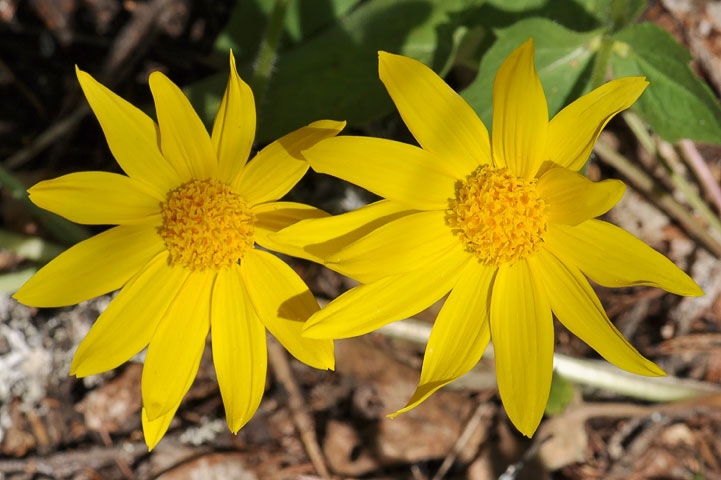 This mountain arnica (Arnica montana) was found in Kokanee Creek Provincial Park.
This mountain arnica (Arnica montana) was found in Kokanee Creek Provincial Park.
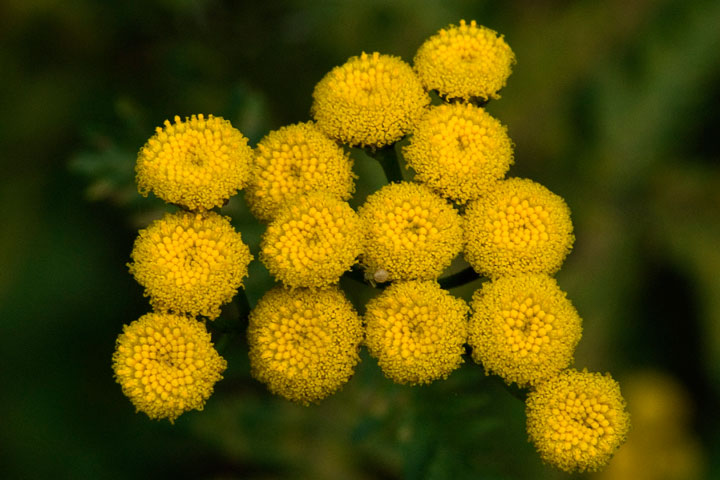 The common tansy (Tanacetum vulgare) in an invasive plant with button–like yellow flowers.
The common tansy (Tanacetum vulgare) in an invasive plant with button–like yellow flowers.
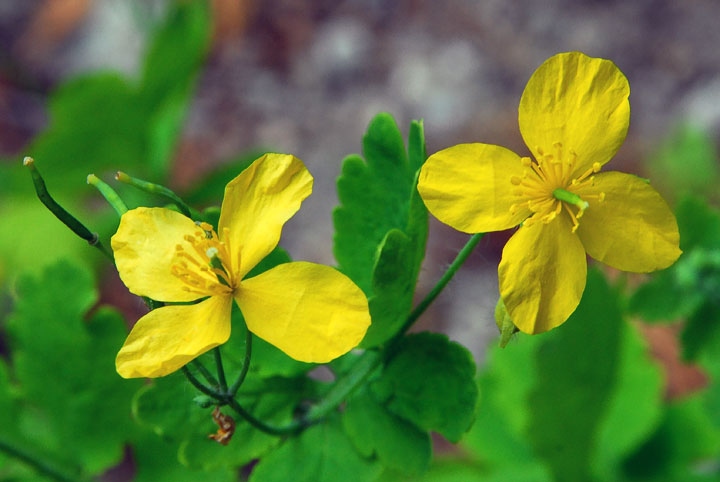 It is a celandine (Chelidonium majus). They can be found at many points along the lakeshore.
It is a celandine (Chelidonium majus). They can be found at many points along the lakeshore.
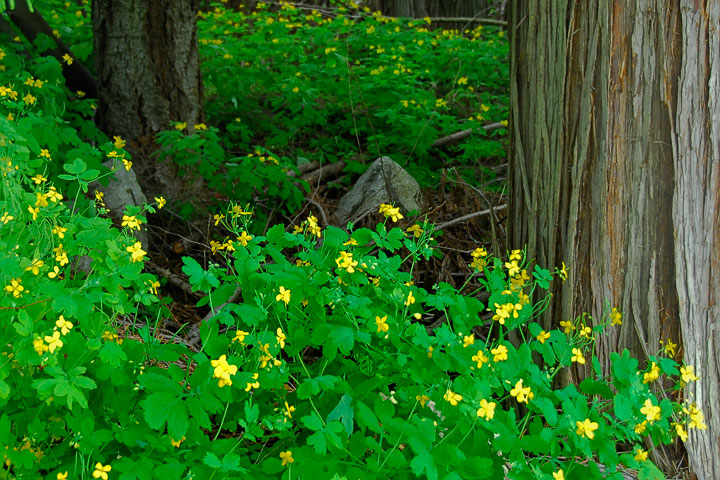 A field of the same celandine as seen in the left picture.
A field of the same celandine as seen in the left picture.
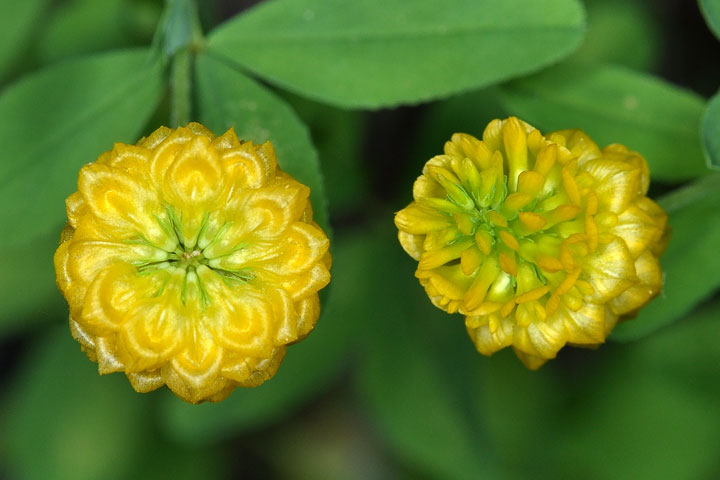 Golden clover (Trifolium aureum)
Golden clover (Trifolium aureum)
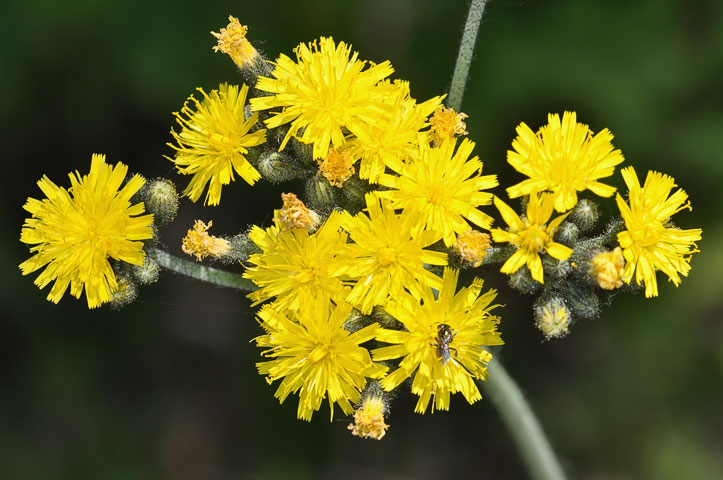 The yellow hawkweed (Hieracium pratense) is an invasive species, but does not appear to be quite as common as the orange hawkweed.
The yellow hawkweed (Hieracium pratense) is an invasive species, but does not appear to be quite as common as the orange hawkweed.
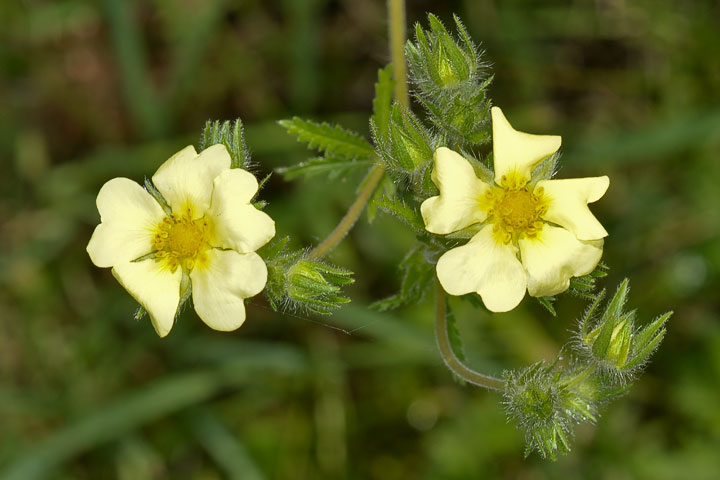 The sulphur cinquefoil (Potentilla recta) is a member of the rose family. Native to Eurasia, this perennial forb is an invasive plant.
The sulphur cinquefoil (Potentilla recta) is a member of the rose family. Native to Eurasia, this perennial forb is an invasive plant.
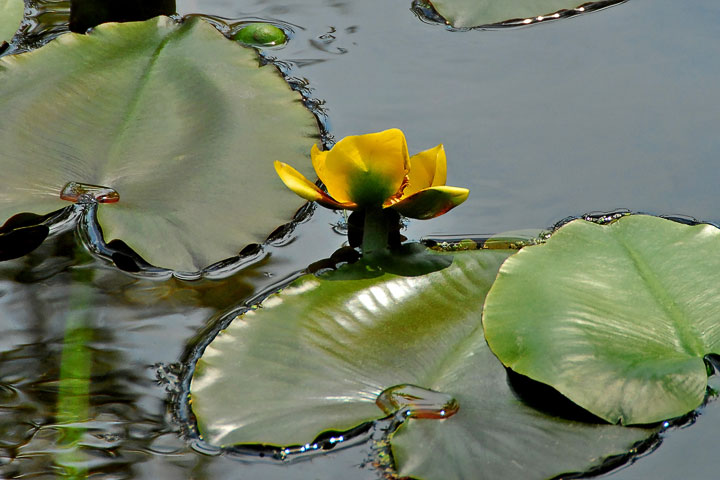 The yellow pond–lily (Nuphar lutea) is an aquatic perennial. This one was found in the wetlands at the south end of the Lake.
The yellow pond–lily (Nuphar lutea) is an aquatic perennial. This one was found in the wetlands at the south end of the Lake.
![]()